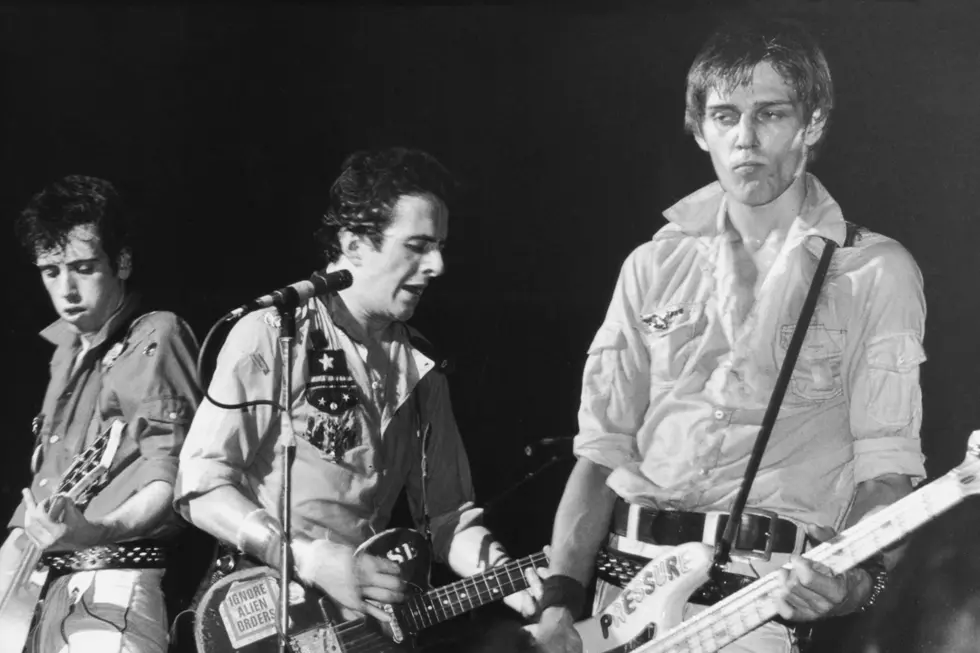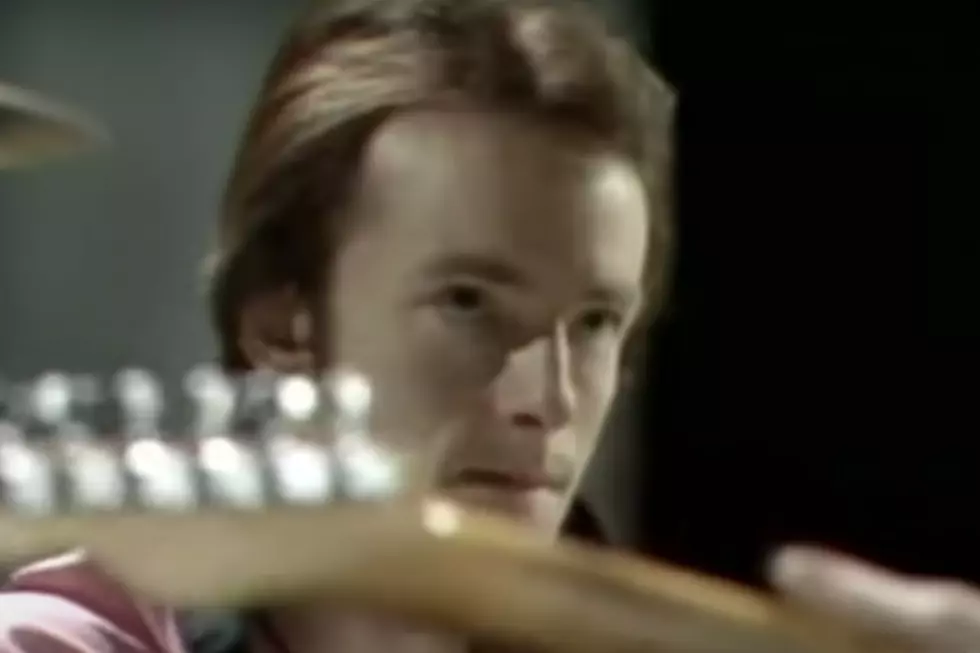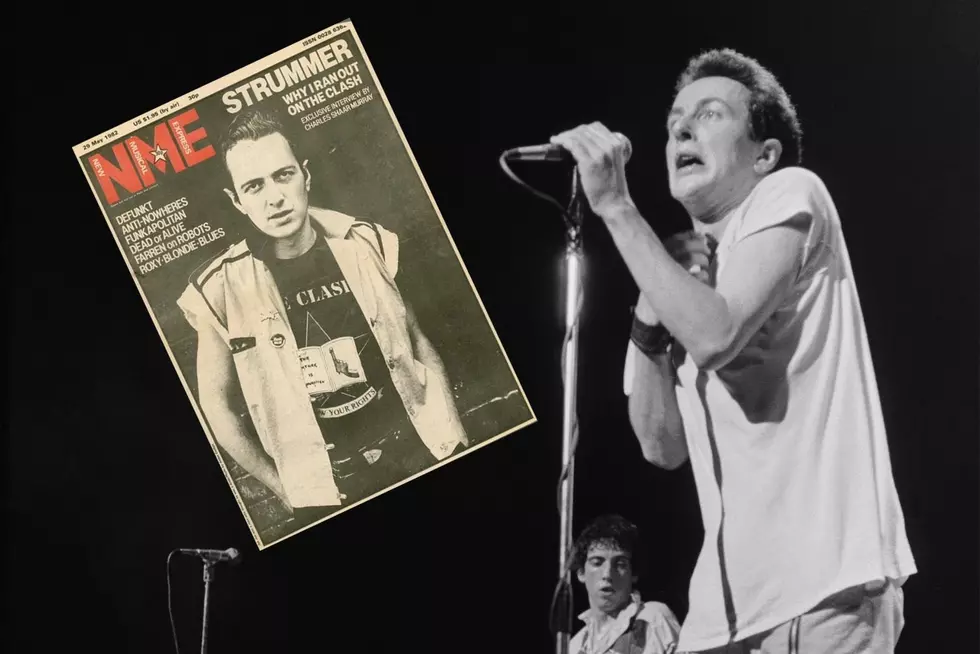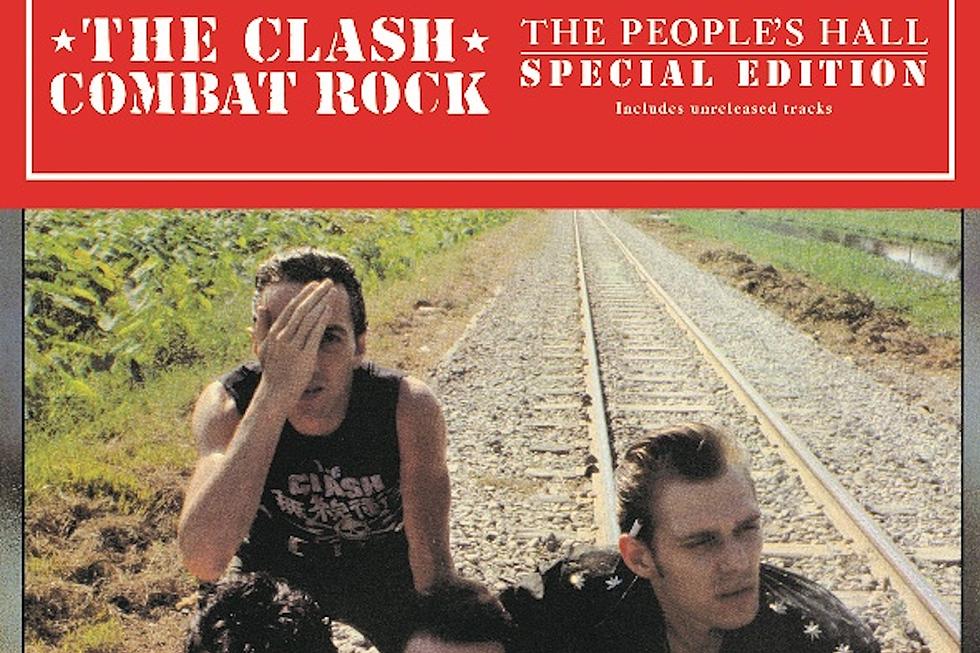
How the Clash Ripped Up the Rule Book With ‘Sandinista!’
It's fairly safe to say that, of all the first wave of punk bands, none was more adventurous than the Clash. With each release, they chipped away at the facade of what the media thought of as "punk" until arriving at the multi-layered odyssey of Sandinista! on Dec. 12, 1980.
"By the time we came to record Sandinista!, we'd toured most huge parts of the world, and it's reflected in the lyrics," drummer Topper Headon said in 2013. "I think we were changed by what we did, what we saw," added guitarist Mick Jones. "We went to these places and we experienced these things, and that changed our view."
"We'd done a really long tour in Britain and in the U.S.," guitarist/singer Joe Strummer later recalled, "and we came straight off that tour and rather than like falling down exhausted, or jetting off to opposite ends of the world or something, we were so up for it that we went straight into a studio, and Columbia didn't even want to buy us any [studio] time. There we were in New York and all we wanted to do was record. We had to force them to spill out for three weeks at Electric Ladyland."
The band essentially camped out in the studio at the time, running with whatever ideas came to them. "Some of those takes are the songs actually being written as they're going down," Strummer remembered. "Musicians were dropping in from all over New York. We were in there day and night. I never went to a bar or a nightclub or anything. I used to sleep under the piano. You couldn't get us out of the studio if you tried." They ended up with so much material that the constraints of a single LP was immediately ruled out by the band.
Their previous record, London Calling, had been a double-album, and they decided to go one step further by making this one a triple-LP set. Convincing the record company would prove to be another matter, especially because the band wanted it to retail for the price of a single. “They said, ‘If you want to put out Sandinista! you have to do it for no royalties,’" Strummer told Uncut in 1999. "So, we said, ‘OK, shove it up your bum, that’s what we’ll do. You think you’re calling our bluff – we’ll do it.’”
From the opening of "The Magnificent Seven," it's clear the Clash were off on a new adventure. Inspired by their surroundings, Paul Simonon lays out an inspired funk bass while Strummer employs a vocal delivery born out of the new sounds of rap floating around New York City at the time. "Mick Jones is the king arranger," said Strummer. "He was always looking to do the new thing. We just like hooked on to some of that vibe and made our own version of it."
Listen to the Clash Perform 'Police on My Back'
Strummer added: "You know what New York was like then? You’d get up at 10 in the morning and you’d get a cab to go to the studio. Rocketing downtown, the driver would stick his hand back with a grass joint. Cool as fuck! I was thinking, ‘This is New York.' Every day, we just showed up and wrote phantasmagorical stuff. What we did was go to the core of what we are about – creating – and we did it on the fly and had three weeks unadulterated joy.”
They explored seemingly every musical corner they could think of over the six sides. From the Motown-inspired pop of "Hitsville U.K.," to the gospel-injected "The Sound of Sinners," dub, reggae, raw funk, and gritty rock and roll all found a home in the anything goes collection. The band still made room for a more traditional Clash sound on such classics as "Somebody Got Murdered" and a blistering cover of the 1967 Equals' record, "Police on My Back."
They bounce from style-to-style within the three albums, something that seemed to land fans and critics on one side or the other. The typical argument being that it would have made more sense had it been a single, or even another double. Others, however, saw what the Clash were doing, exploring the big world of music and politics.
Perhaps lost within the huge chunk of material is the fact that there are some truly great songs there, and yes, had it been a single LP, it would have been seen in a much different light. In addition to the aforementioned tunes, "The Call Up," "Rebel Waltz," "The Leader," "Washington Bullets," and "The Street Parade" all rank with the band's best work. While it's a lot to wade through, ultimately, it's well worth it.
"I think that our of all our albums, that is kind of the album now that interests me most," Headon said. "There's all sorts of music on that album that I think now, it was so far advanced for its time." Jones backed up that assertion by joking, "There's more marimba on it than any other punk record." But it was Strummer who summed it up perfectly with, "There's some stupid tracks, there's some brilliant tracks. But the more I think about it, the more happy I am that it is as it is."
Top 10 Punk Albums
More From Ultimate Classic Rock









